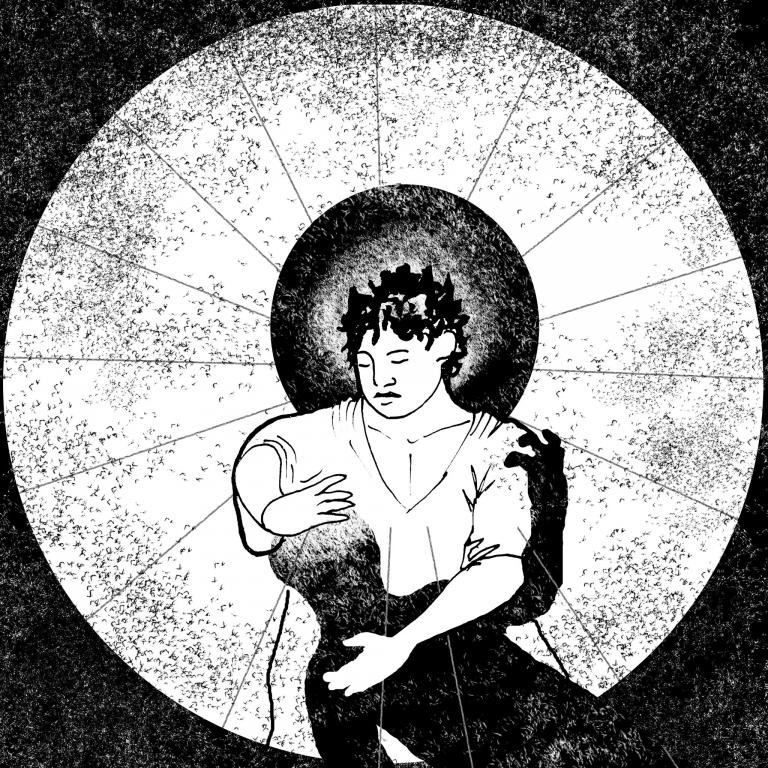When I was 17 years old, I became the primary caregiver for my dying mother. She had emphysema. Eventually a lung collapsed and she was hospitalized. Only then did she quit smoking.
After school and on weekends, I’d cook meals. I also did the grocery shopping and tried to clean (my mom was a mild hoarder, so my attempts at cleaning usually failed). Every once in a while, we’d get the call that there was a potential donor match for a lunch transplant, and I’d driver her to our small regional airport.
At the time, it didn’t seem that overwhelming.
Eventually, she got the transplant. Shortly thereafter, she moved to the Twin Cities to live with my older sister. She started smoking, secretly, and died. I was at the hospital when she flat-lined. It wasn’t until that moment that all of the suppressed sorrow, anger, confusion came spilling out. And, with it, an unexpected feeling: relief. It was that last feeling that gave way to feelings of regret, guilt, and shame. Pretty much every negative emotion a human being could feel, I felt suddenly. I broke down, alone in a hospital room, next to my dead mother.
It was overwhelming.
* * *
 We live in a broken world. A world filled with suffering–physical, emotional, spiritual. But, usually (at least in this nation) we don’t find it overwhelming. Folks seem unable to feel what experience should lead them to feel. When we see dead bodies on television, shouldn’t we weep? When we hear a child mispronounce “spaghetti” shouldn’t we laugh joyously? When we hear of drone strikes in foreign lands, shouldn’t we rage?
We live in a broken world. A world filled with suffering–physical, emotional, spiritual. But, usually (at least in this nation) we don’t find it overwhelming. Folks seem unable to feel what experience should lead them to feel. When we see dead bodies on television, shouldn’t we weep? When we hear a child mispronounce “spaghetti” shouldn’t we laugh joyously? When we hear of drone strikes in foreign lands, shouldn’t we rage?
Injustice and suffering happens around us…continually. It is tempting to think that nobody notices. It is like the bumper sticker: “If you aren’t angry, you aren’t paying attention.”
Or perhaps they notice, but feel so overwhelmed that they become numb, crushed under the weight of all that is wrong in the world. Apathy can be a cold and selfish condition, but in our world, perhaps, it is more likely a numb feeling that comes from being overwhelmed. We don’t feel overwhelmed because we have become numb. Apathy is, perhaps, a sane respond to the brokenness that we feel powerless to confront.
We are conditioned to avoid suffering. To avoid pain. To numb ourselves or seek distractions. Ours is a society of endless self-distraction.
This isn’t always how it has been. In most traditional cultures, communities gather together in the face of sorrow. Folks used to hold wakes in their own home. When someone was sick, they were cared for by family and had visitors. When my mother first got sick, I would find boxes of food on our doorstep from strangers. These things are increasingly rare among middle class white folks. Now the sick are put away in a hospital and visited briefly. We hold funerals in bizarrely impersonal funeral parlors. We are removed from our sufferings.
Ours is an apathetic society.
Apathy comes from a Greek word apatheia, which is made up of two words: a meaning “without” and pathos meaning “suffering.” Of this, Dorothee Soelle writes:
Apathy is a form of the inability to suffer. It is understood as a social condition in which people are so dominated by the goal of avoiding suffering that it becomes a goal to avoid human relationships and contacts altogether. In so far as the experiences of suffering, the pathai (Greek for the things that happen to a person, misfortunes) of life are repressed, there is a corresponding disappearance of passion for life and of the strength and intensity of its joys. Without question this ideal bears the imprint of middle-class consciousness.
When things are too overwhelming…we aren’t to be bothered by them. When we see injustice and suffering, we shut down.
When we experience the struggles of others, we can shut down. We veg out in front of a glowing screen. We head out to the bar to drink with buddies who never ask personal questions. We take a nap.
But while these strategies can have their place (because all of these things can be healthy in reasonable measure), what we most need isn’t freedom from the struggles of others, but fullness of life.
If we believe Jesus shows us the way to fullness of life, then we we can see it isn’t found in avoiding struggle and pain. Fullness of life comes from love. It comes when we refuse to let the things around us alienate ourselves from one another. Instead of avoiding struggle, we need to pursue life.
The threat to fullness of life doesn’t come from struggle or suffering or death; it comes from the things in our society that breed apathy. It comes from things that shut down our brains—the myths that tell us that everything is the way it has to be. It comes from the things that distract us but don’t foster anything good in us.
Sometimes, when folks ask me “what does your typical day at the Mennonite Worker look like?” I will jokingly respond: “It looks like sitting in your room avoiding guests and watching Netflix.” It may be an exaggeration, but it is one based in truth. When confronted with the suffering of another, my programmed instinct is to inject myself with mental anesthesia by watching Netflix (or Hulu). But I have never found it reinvigorating. A nap would at least give rest to my body. Reading a book would at least stimulate my mind. Taking a walk would at least recharge both my body and mind. But while solitude can be refreshing, isolation and distraction stifles the soul.
Fullness of life comes from looking at those around us with hearts filled with love…it doesn’t come from avoiding their pain. This is what our brother Jesus taught us. This is why some of the most joyous and loving people in our world are those who embrace broken people as family.
Jesus rejects apathy. Instead, his is a way of compassion. Compassion comes from the Latin word that means “to suffer with.” Compassion rejects apathy and alienation and bridges the distance between persons. Compassion is usually understood, in our society, as a sentiment. We boil it down to warm feelings of pity.
Perhaps this is because our society has so thoroughly inherited the separation of action from intention that we feel sentiment is all that is required to be a loving human being. But in Jesus there is no separation between intention and action. His action reflect his heart, just as his life reflects the very life of God.
Rather than a weak sentiment, or a condescending act of charity, compassion is prophetic. Those with compassion refuse to accept the world as it is and enter into injustice and brokenness. Compassion refuses to accept the alienation and distance between people. It collapses the distances between us. And, in bridging the distance, compassion exposes the principalities and powers and myths that breed alienation and separation.
In his classic work, The Prophetic Imagination, Walter Brueggemann puts it this way:
Compassion constitutes a radical form of criticism, for it announces that the hurt is to be taken seriously, that the hurt is not to be accepted as normal and natural but is an abnormal and unacceptable condition for humanness…Thus the compassion of Jesus is to be understood not simply as a personal emotional reaction but as a public criticism in which he dares to act upon his concern against the entire numbness of his social context.
This society–our empire–requires numbness. Empires, in their militarism, expect numbness about the human cost of war. Corporate economies expect blindness to the cost in terms of poverty and exploitation. The powerful go to great lengths to keep the numbness intact.
And we go along with this because we’ve bought into the lie that the good life is to avoid not only suffering in ourselves, but the suffering of others.
Jesus penetrates the numbness by his compassion and with his compassion takes the first step by making visible the odd abnormality that had become business as usual.
Thus compassion that might be seen simply as generous goodwill is in fact criticism of the system, forces, and ideologies that produce the hurt. Jesus enters into the hurt and finally comes to embody it.
The way of Jesus is the way of compassion. It involves sharing life with those around us and suffering with them. It confronts the suffering, embraces those who are suffering, and exposes the reason for their suffering.
And so we see throughout the Gospels Jesus embracing those who suffer. Meanwhile he challenges those things that cause apathy: worrying about tomorrow (which distracts us from those in front of us today), love of money (which distracts us from loving God and people), religious legalism (which treats suffering as a just punishment), etc.
Matthew’s gospel tells us that “when Jesus saw the crowds, he had compassion because they were helpless like sheep with out a shepherd.” People are like that today. We are frightened, even if we can’t feel it. May our response be the way of compassion…to walk with people in their suffering. May we remind people of what is real—love and pain and joy and sorrow—all in full measure without alienating distractions.











